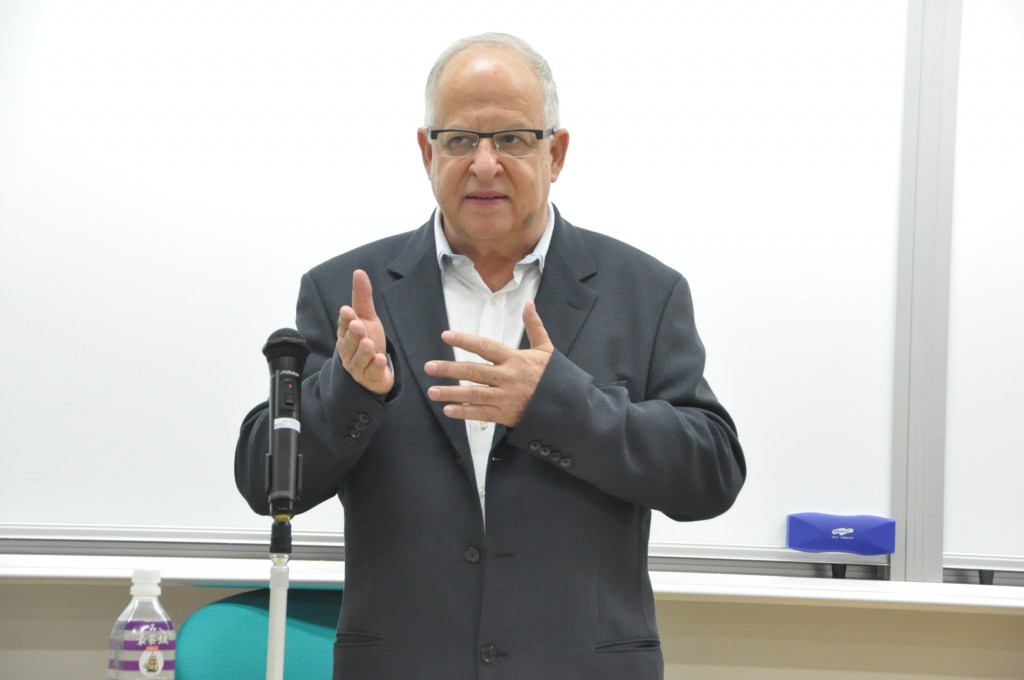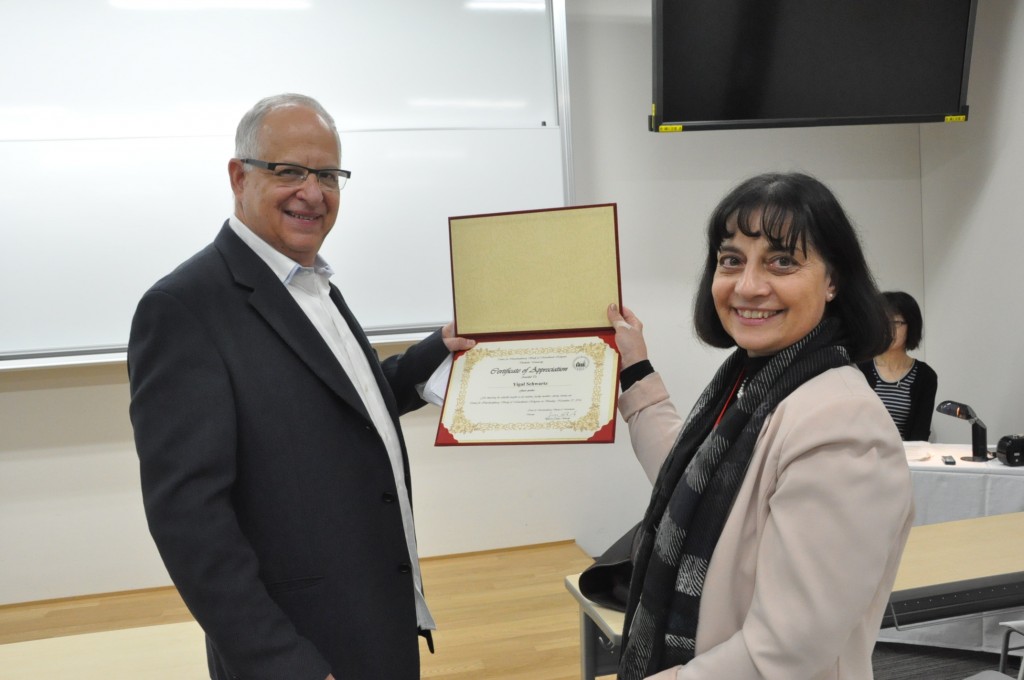Center for Interdisciplinary Study of Monotheistic Religions(CISMOR)Doshisha University
> Public Lectures > Hoffman’s Fiction: At the Crossroads of Religions and CulturesPublic Lectures
The 9th Annual Conference on Jewish Studies
Hoffman’s Fiction: At the Crossroads of Religions and Cultures
| Date: |
2016/11/27 13:00-15:00 |
|---|---|
| Place: | Room SK112 (Shikokan 1st floor), Karasuma Campus, Doshisha University |
| Lecture: |
Professor Yigal Schwartz (Department of Hebrew Literature, Ben-Gurion University of the Negev) |
| Summary: | |
|
Mr. Schwartz, quoting a work by Mr. Hoffmann, gave a lecture on Mr. Hoffman’s work and the work’s special features. A commonly shared response to beginning readers of Hoffmann is one of confusion. Ever since he appeared on the literary scene, critics and researchers have tried various means to understand his works. I consider this genre to be “post-apocalyptic epic poetry.” The context for Hoffmann’s artistic genius is a certain philosophical assumption of post-apocalypse. That is to say, the civilized world destroyed itself in the course of the Second World War. From his perspective, Jews are the basis for the clear articulation of morality and dignity in the West. With the Holocaust, Western civilization—particularly the attainment of universal morality and rational philosophy—died. At the same time, the centrality of the physical world which take shape in his works disappeared. Because his world possesses such a character, Hoffman is attracted to all manner of unconventionality, and his works are full of such eccentric language. The characters which appear in his works are diverse with regard to their origin and era, and they have uncertain or unclear experiences. They share a commonality and a unique cognitive mechanism which I call “the eye of the cyclops.” Because they possess this eye of the cyclops, they are able to see things which others are unable to see or which they do not wish to see. Some critics hold that the denouement of postmodern philosophy in which Western modernity in the postwar era sees the self as fractured and scattered is expressed in Hoffman’s works and can be construed as the human condition. Other critics see Hoffman’s the self (“I”) in Hoffman’s works as the Buddhistic self. I also believe that Hoffman’s anthropology is deeply influenced by the frightening events of World War II and the Holocaust, but I do not see his concept of self (“I”) as being postmodern or Buddhistic. I consider his conclusion of poetics as being diametrically opposed to modernism. Researchers and critics of Hoffman’s works, almost without exception, touch upon his unique form. What is especially salient is the fact that each sentence in the paragraph is short. In my opinion, epic poetry and the narrative literary genre are both written in a similar style. This use of this epic poetic style is on the one hand bold and unconventional, yet on the other hand delicate and true to Hoffman’s own sensitive spirit of order. As a genre, Hoffman’s uniqueness is in the fact that all of his works have a very prominent lyricism. The point in which this facet is most noticeable is his particularly intimate treatment of the protagonist. Hoffman loves his protagonists and treats them as his family. A source of this strong affinity for his characters is Hoffman’s understanding of the post-apocalyptic world. Hoffman strongly believes that the source of human tragedy is the fact of human consciousness and the fact that the he cannot escape the inevitable suffering and death. By dint of this epistemological fact, he believes that humans, and especially the one who tries to attribute meaning to one’s essential absurdity, are to be loved. If I were to select one of Hoffman’s unique ethical traits I would choose the term “kindness,” the act of being kind to all humans. His kindness is directed toward those who cannot see but who are wise, in particular the cyclopses—in other words, the people who had their country attacked, migrants, hallucinators, prostitutes, widows, orphans. He finished his talk be stating that the spirit of Hoffman’s greatness lies in his ability to be caustic and grotesque while at the same time touching our hearts and moving us to tears. Translated by Stig Lindberg (Kyoto University) |
|
|
*Admission Free, No Reservation Necessary. *Lecture in English , interpretation will be provided. |
|
|
20161127poster CJS9:PROCEEDINGS |
|

